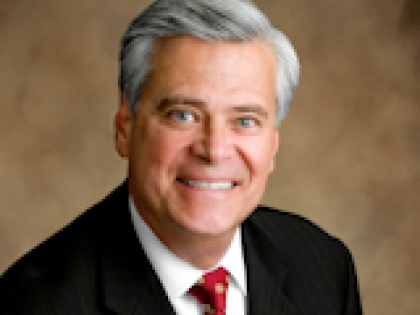
Senate Passes Bill to Reform New York’s Care of People WITH Special Needs and Disabilities
Dean G. Skelos
June 20, 2012
Legislation Creates the Justice Center for the Protection of People with Special Needs to Prevent, Investigateand Prosecute Abuse and Neglect of Vulnerable New Yorkers
The New York State Senate today passed sweeping legislation that will transform how New Yorkers with special needs and disabilities are protected. The bill (S7749) sponsored by Senator Roy McDonald (R-C-I, Saratoga) is part of a three-way agreement between the Senate, Assembly and Governor Cuomo to establish the strongest standards and practices in the nation for protecting individuals in state operated, certified or licensed facilities and programs.
“We are moving the issues related to mental health and developmental disabilities into a priority status, and this legislation is a great first step in the right direction,” said Senator McDonald, Chairman of the Mental Health Committee. “Protecting people who cannot help themselves should be the definition of a good and caring society. I want to thank Senate Majority Leader Dean Skelos, Governor Cuomo and members of the Assembly, not only as an elected official but also as the grandfather of two special needs grandsons, for their partnership in working to make the future brighter and safer for those entrusted in our care.”
“This measure will protect the most vulnerable New Yorkers from abuse and neglect when placed in the care of others,” Senate Majority Leader Dean G. Skelos said. “Senator McDonald worked closely with Governor Cuomo to create a comprehensive safety net that will protect the health and welfare of people with special needs and provide peace of mind for their family, friends and loved ones.”
The bill strengthens and standardizes the safeguards for vulnerable children and adults who receive care from New York's human services agencies and programs. It creates a Justice Center for the Protection of People with Special Needs, a new entity that would cut across bureaucratic lines and have as its primary purpose and responsibility the protection of the health, safety and welfare of vulnerable persons. The Center would improve the state's response to allegations of abuse and neglect for individuals served in both residential and non-residential facilities, by:
- operating a statewide 24-hour hotline staffed by trained personnel to which mandated reporters would be required to report reportable incidents committed against people with special needs who are being served by State and private residential and non-residential facilities and programs;
- ensuring that allegations of abuse and neglect are promptly, fully and effectively investigated, including ensuring that, where appropriate, these incidents are reported to law enforcement and the wrongdoers prosecuted;
- developing common standards and requirements for investigations and trainings of investigators;
- ensuring that individuals who are responsible for abuse and neglect of people with special needs are held accountable;
- prosecuting abuse and neglect crimes committed against people with special needs through concurrent authority with District Attorneys;
- requiring providers to implement corrective action plans to prevent future incidents of abuse and neglect;
- representing the State at all State employee disciplinary proceedings and at administrative proceedings related to substantiated allegations of abuse and neglect;
- requiring, where permitted by existing collective bargaining agreements, that individuals found responsible for serious or repeated acts of abuse or neglect be subject to termination, and imposing progressive discipline, including retraining, on employees responsible for less serious acts;
- developing a register that will contain the names of individuals found responsible for egregious or repeated acts of abuse or neglect, and barring such individuals from future employment in the care of people with special needs;
- conducting the criminal history background check function for any person applying to be an employee, volunteer or consultant for whom a criminal background check is required as a condition of employment at any facility or provider agency operated, licensed or certified by the Office of Mental Health, Office for People with Developmental Disabilities or Office of Children and Family Services;
- providing oversight of the human services system, conducting death and abuse investigations, and identifying risks and best practices to promote improved quality of care for people with special needs; and
- developing codes of conduct to which all workers who have regular contact with people with special needs must subscribe.
This bill also creates other protections for people with special needs by strengthening criminal statutes that make abuse of vulnerable or disabled persons a crime. It promotes transparency by requiring non-state operated and provider agencies to disclose the same records relating to abuse and neglect as State agencies are required to do under the Freedom of Information Law.
The bill has been sent to the Assembly.
###
Share this Article or Press Release
Newsroom
Go to NewsroomJoin the Fight to Pass the Property Tax Cap
April 12, 2011

West Point Day at the State Capitol
April 7, 2011
